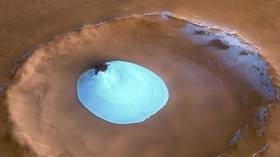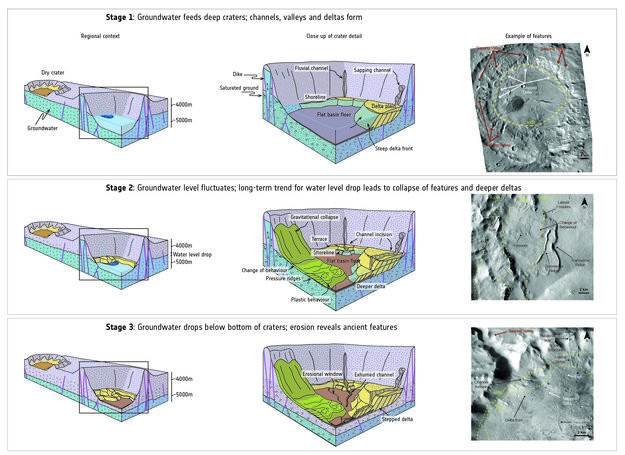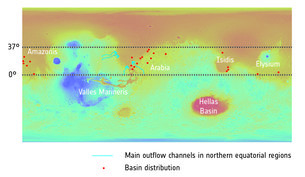Mars had a ‘planet-wide groundwater system,’ stunning breakthrough reveals

Scientists have discovered the first geological evidence of a system of ancient interconnected underground lakes on Mars. Five of the lakes may have contained minerals that are crucial to life.
A new study now reveals ancient Mars had a planet-wide underground water system, confirming what before now was only theorized, thanks to the European Space Agency (ESA) Mars Express orbiter.
“Early Mars was a watery world, but as the planet’s climate changed this water retreated below the surface to form pools and ‘groundwater,’” said lead author Francesco Salese. “We traced this water in our study, as its scale and role is a matter of debate, and we found the first geological evidence of a planet-wide groundwater system on Mars.”

Scientists examined 24 deep enclosed craters in Mars’ northern hemisphere, which had depths of 4,000m below “martian sea level.” The floors were found to contain features that could only be created by water, such as valleys and channels on the crater walls and dark deltas thought to have formed from water levels rising and falling.

“These lakes would have existed around 3.5bn years ago, so may have been contemporaries of a Martian ocean,” co-author Gian Gabriele Ori said, explaining that the underground lakes were likely connected to the ocean, which is thought to have existed 3-4 billion years ago.
Researchers were excited by the discovery of minerals in five of the lakes, including clays, carbonates, and silicates. The find adds further weight to the theory that Mars was home to life at one stage.
Think your friends would be interested? Share this story!













